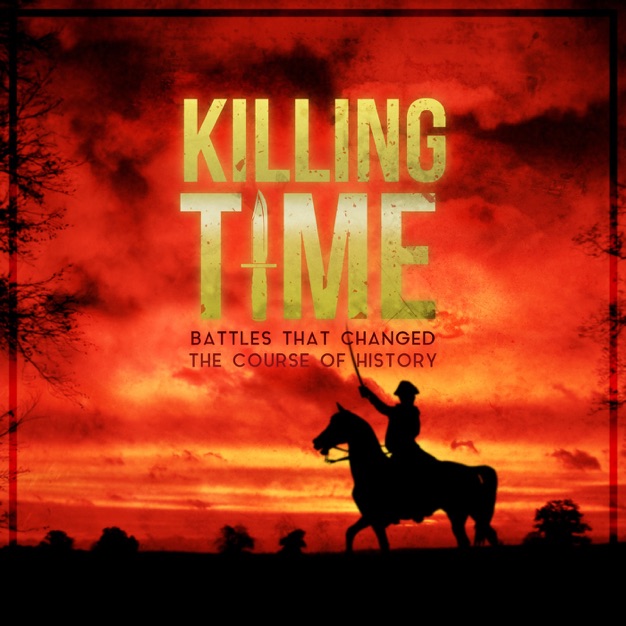
Killing Time
Chip Wagar
This is a podcast about the greatest military battles and campaigns that changed the course of history for non-military listeners.
- 1 hour 47 minutesEpisode 16 - The Battle of Stalingrad
A disastrous offensive launched by the Red Army in May, 1942 around Kharkov ended in a rout that paved the way for a renewed German offensive deep into southern Russia and the Ukraine beginning on June 23, 1942. The goal was to break Soviet resistance by capturing the oilfields of the Caucasus and the River Volga at Stalingrad. The Red Army was once again put on the defensive and soon their backs were against the Volga River, desperately trying to hang on in the face of an implacable and ruthless enemy bent on the annhilation of the Slavic people. This battle, fought in subhuman conditions between August 1942 and January 1943 cost nearly 2 million casualties and unspeakable suffering for those who fought and died there. This is the story of the battle many consider the turning point of World War II in Europe.
26 April 2018, 2:38 pm - 1 hour 29 minutesLeipzig 1813 -The Battle of the Nations
The fate of Europe hung in the balance at Leipzig in October, 1813. His invasion of Russia had ended in failure in December 1812, and Napoleon Bonaparte was now beset by defections of allied nations who had marched with him and pursued by a Russian army entering Germany intent on revenge. Determined to maintain his dominance of continental Europe, Napoleon quickly assembled a new army - a quarter million strong - to defend his Empire and his crown. Encouraged by the destruction of much of the French army in the Russian campaign, first Sweden, then Prussia and finally Austria declared war and marshalled their armies to confront Napoleon in the small kingdom of Saxony. The mystique of the man the Duke of Wellington once said was worth 40,000 men on a battlefield was still alive as he routed Coalition armies at Lutzen, Bautzen and again at Dresden. Numerical superiority seemed irrelevant when Napoleon was on the field, but his genius would be put to the test at Leipzig. In four days that shook the world, the unthinkable would finally happen.
21 January 2018, 6:47 pm - 1 hour 31 minutesEpisode 14 - Midway
The United States was caught unprepared for a surprise Japanese air attack on December 7, 1941 and suffered its worst naval defeat in history. With successive invasions and defeats in Guam and the Philippines, including the surrender of its remaining army at Corregidor, the United States was losing the war in the Pacificto Japan in June, 1942. Yet there remained a flicker of hope, because the American aircraft carriers had not been caught at Pearl Harbor and could still roam the seas, threatening the Japanese home islands and further conquests abroad. Japanese supreme commander Yamamoto was determined to ambush the four American carriers and end the threat once and for all. Newly appointed Pacific Fleet commander Chester Nimitz took over a demoralized fleet at Pearl Harbor knowing he could not allow the loss of his carriers or his island base in Hawaii. When he learned of an impending attack on Midway Island, he risked everything in a desperate gamble to outfox the Japanese fleet and ambush their carriers. This is the story of a miraculous and pivotal victory at sea that ranks with the greatest in history.
10 September 2017, 8:37 pm - 2 hours 11 minutesEpisode 13 - The Battle of the Marne - 1914
On August 27, 1914, a bare three weeks into the First World War, the hopes and dreams of the French to liberate their lost provinces of Alsace and Lorraine by beating the German Army were in ashes. Hard and costly defeats had been inflicted on their army by a seemingly relentless grey tide of German soldiers backed by heavy artillery, the likes of which the world had never seen. Worse still, an incoming tide of a million German soldiers cutting through Belgium seemed unstoppable and that Paris would fall in a matter of a week or so. This is the story of how the French army rose from its knees and managed to inflict a stunning and decisive defeat on the German invaders that saved their country from disaster. This is the story of the Miracle of the Marne.
4 February 2017, 8:02 pm - 1 hour 28 minutesEpisode 12 - The Battle of Solferino - 1859
This pivotal battle of the four Italian Wars of Independence in the mid-19th century was, in its day, the greatest European battle fought since the end of the Napoleonic Wars in 1815. The appalling carnage that resulted from three armies desperate struggle in suffocating summer heat in northern Italy shocked the civilized world. Swiss businessman Henri Dunant, who visited the battlefield the day after, was so moved by the pitiful treatment of the wounded and dying, that he established the International Red Cross, which survives to this day. It also led to the first Geneva Convention that protected ambulances and medical personnel from enemy attack during and after a battle. The outcome of the battle would be instrumental in the establishment of a free, united Italy in place of what had been a scattering of independent or foreign-dominated, small states on the peninsula. The story of this monumental battle is told in this episode which the author visited himself in the summer of 2016.
22 August 2016, 11:41 am - 1 hour 10 minutesEpisode 3 - The Battle of Koniggratz - 1866The Battle of Koniggratz, fought on July 3, 1866, was the largest military battle on the continent of Europe between the end of the Napoleonic Wars in 1815 and the Battle of the Somme during the First World War in 1914. Another improbable battle in this series, it seemed at the outset of the war that Prussia would be slowly crushed by the vast resources of Austria and the other German states, nearly all of whom allied with Austria. When Austria's imperial army defeated Prussia's only ally, the kingdom of Italy, at Custoza on June 24, Prussia's doom seemed to be only a matter of time. This is the story of the brilliance of Prussia's supreme commander, Helmuth von Moltke, and how in a matter of six weeks, he humbled the Austrians on the fields of Moravia in a lightening campaign. Austria's defeat and consequent expulsion from Germany irrevocably altered the European balance of power and within five years, the German Empire was born under Prussian domination with its capital in Berlin.28 February 2016, 9:38 pm
- 1 hour 12 minutesEpisode 11 - Yorktown and the Battle of the CapesIn 1781, the American Revolutionary War had been going on for over six years with more defeats for George Washington and the cause of American independence than victories. The British army under the command of Sir Henry Clinton, based in New York, together with a large fleet commanded by Admiral Thomas Graves, appeared impregnable and invincible. The British could strike anywhere, anytime along the extended American coastline bringing overwhelming military power to bear. In the last year, Clinton had again demonstrated this power as his army swooped in from the sea, annihilated a large American garrison at Charleston, South Carolina, and then returned to New York leaving a large occupying force there under the command of Charles, Lord Cornwallis. As another winter faded into Spring, Cornwallis was moving north from the Carolinas to establish another base midway between Charleston and New York in Virginia, scattering smaller American forces under Lafayette as he went. Yet new hope sprang up with the arrival of a French expeditionary force of 6,000 men under the command of the Compte de Rochambeau in Rhode Island coupled with the possibility of naval support from the French admiral de Grasse in the Caribbean. This is the story of a remarkable combination and coordination of sea and land forces that Washington managed patiently and brilliantly, decisively defeating a major part of the British army which finally compelled Britain to grant independence to the new American Republic, changing the course of history28 February 2016, 9:27 pm
- 1 hour 32 minutesEpisode 10 - TrafalgarIn October 1805, Britain had been almost continuously at war with Napoleonic France and under the constant menace of invasion across the narrow English Channel at Boulogne. There stood nearly a quarter million men under the personal command of Napoleon himself. The Armee d'Angleterre was the finest army on the continent of Europe and stood ready to invade and humble the "nation of shopkeepers", as the French Emperor contemptuously called his most implacable enemy. Standing between him and the beaches of Kent was the British navy. Napoleon had conceived a clever plan to unite the French and Spanish fleets and temporarily attain naval superiority in the Channel, long enough to get his army across. If he succeeded, he later claimed, "it would have been all over with England." This is the story of England's most famous naval commander of all time and how he managed to utterly annihilate the combined Franco-Spanish fleet off the coast of Spain in about five hours, losing his own life in the battle. Upon the outcome of this one battle on the high seas the fate of three empires were were sealed and the world would never be the same again.16 November 2015, 3:03 am
- 1 hour 3 minutesEpisode 9 - The Battle of AusterlitzAfter a dizzying rise to power, the 35 year old Napoleon Bonaparte faced his downfall in the summer of 1805 when first Russia and then Austria allied themselves with Britain to destroy the French Empire. A fourth great power, the kingdom of Prussia, waited in the wings for Napoleon to falter and would then join the alliance too. Deciding not to wait while his enemies slowly mobilized, Napoleon and his Grande Armee, encamped for nearly two years at Boulogne waiting to invade England, broke camp and marched east. This is the story of how Napoleon defeated his enemies, winning his greatest military triumph at Austerlitz and broke the alliance in just four months time on December 2, 1805. This campaign, culminating in this famous battle, is the supreme accomplishment of the greatest military mind of his age and, perhaps, of any age.8 October 2015, 3:00 am
- 1 hour 36 minutesEpisode 8 - The Six Day War - 1967The State of Israel faced mortal danger in June, 1967. Surrounded on three sides by hostile Arab states, armed to the teeth with the latest Soviet equipment, on paper, the odds of Israel's survival did not look good. Yet in six days that stunned the world, Israel not only survived, but routed three armies and tripled the size of its territory at the expense of Egypt, Syria and Jordan. The impact of this brief campaign is still being felt today. This episode describes how this incredible military achievement was planned and executed using every art of war by Israel's brilliant commanders, Moshe Dayan, Yitzak Rabin, Mordechai Hod and their generals. Conversely, learn how the seeds of destruction were sown in the Arab alliance and within the political/military institutions of Egypt and Syria before the war ever began.5 September 2015, 12:50 pm
- 1 hour 30 minutesEpisode 7 - The Battle of France 1940
As Winston Churchill watched the French army march past on Bastille Day, 1939, amid the tensions of Europe, he exclaimed "Thank God for the French army ..." and with good reason. France had the best equipped and largest army on the continent. Further bolstered by the virtually impregnable Maginot Line on its eastern border with Germany, a fleet second only to Britain's and a mighty air force, conventional thinking was that the Franco-British forces could and would defeat Germany's Wehrmacht if need be, or starve Germany to death by blockade. In this episode, we learn how a German general came up with the one plan that might succeed in winning the war and how the Battle of France was lost by the Allies, dooming the continent to five years of slaughter and destruction.
19 July 2015, 2:18 am - More Episodes? Get the App
Your feedback is valuable to us. Should you encounter any bugs, glitches, lack of functionality or other problems, please email us on [email protected] or join Moon.FM Telegram Group where you can talk directly to the dev team who are happy to answer any queries.
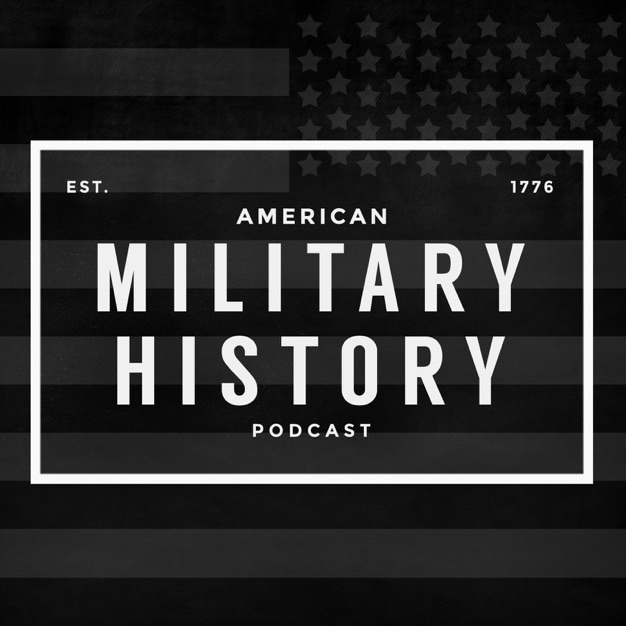 American Military History Podcast
American Military History Podcast
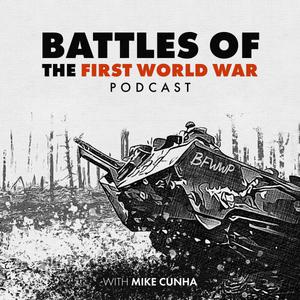 Battles of the First World War Podcast
Battles of the First World War Podcast
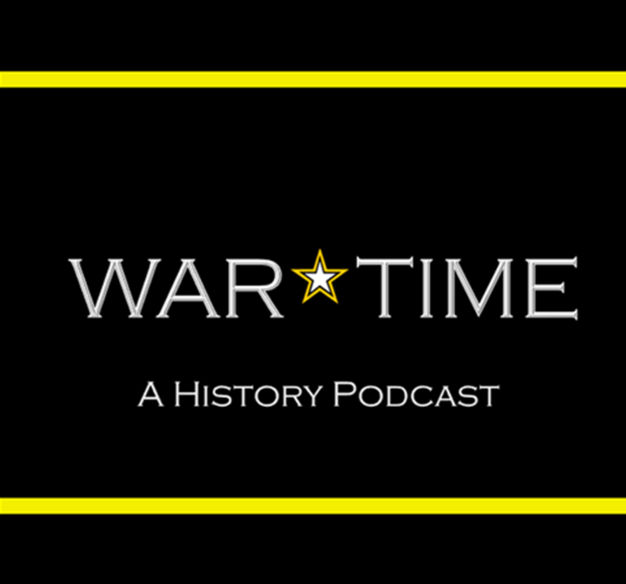 WARTIME: A History Series
WARTIME: A History Series
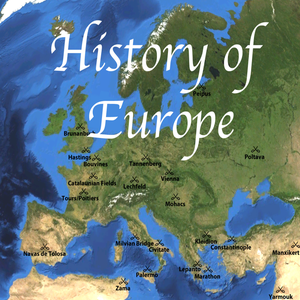 A History of Europe, Key Battles
A History of Europe, Key Battles
 The Great War Podcast
The Great War Podcast
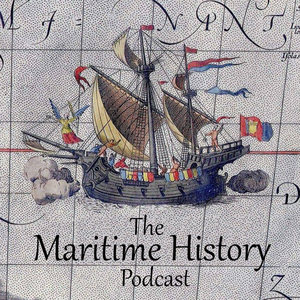 The Maritime History Podcast
The Maritime History Podcast